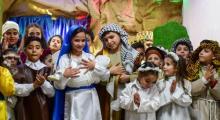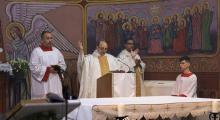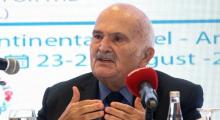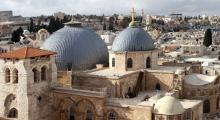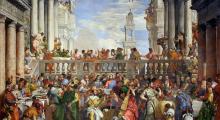Issued by the Catholic Center for Studies and Media - Jordan. Editor-in-chief Fr. Rif'at Bader - موقع أبونا abouna.org
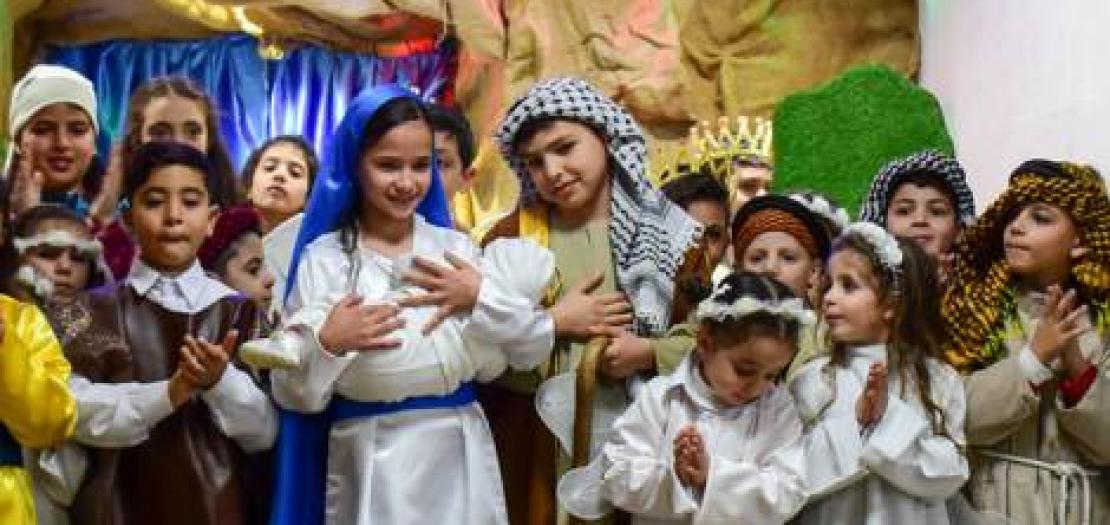
"In these painful days, being an integral part of the reality that surrounds us, we walk through valleys shadowed by death, displacement, starvation and despair," reads a document from the ecumenical group."
A Jerusalem Voice for Justice," which addresses a long letter "to our people and our pastors" to recall the resources Christians can draw from and the mission to which they are called in this time of horror and suffering that has disfigured the Holy Land, the Land of Jesus.
The group "A Jerusalem Voice for Justice" was born spontaneously and, in the face of renewed outbreaks of violence and terror in the Holy Land, has come together to analyze the events and processes that affect and shake the lives of the peoples of the Land of Jesus. The network includes, among others, Latin Patriarch Emeritus of Jerusalem Michel Sabbah, Lutheran Bishop Munib Younan, Greek Orthodox Bishop Attallah Hanna, Sawsan Bitar, coordinator of the "Sabeel" Ecumenical Center, Palestinian theologian John Munayer, Jesuit Father David Neuhaus, and Father Frans Bouwen of the Society of Missionaries of Africa (White Fathers).
The witness of "remaining"
"In Gaza," say the signatories of the letter on the current situation in the Holy Land, "genocide is taking place in Gaza and risks spreading to other parts of Palestine too. Ethnic cleansing in Gaza, through the systematic destruction of houses, hospitals and educational institutions, advances from day to day. Similar practices are being applied in the West Bank, through the violent attacks, by Israeli settlers with the complicity of the Israeli army. Houses are demolished, whole villages destroyed and their inhabitants made homeless; thousands of prisoners are under administrative detention without any legal protection; people are killed and wounded, olive trees are burnt, harvests destroyed, herds of sheep and cattle killed or stolen, private property looted."
In this time of suffering, the letter states, "it breaks our hearts to see families expelled or pressured to leave Palestine-Israel. For those who leave by choice, we do not criticize them for doing so, for we know the burden we all carry. We pray and bless them wherever they go. Among us—members of the Body of Christ rooted in the soil of Palestine—though, there are those who have chosen to stay, to speak out and to act."
The decision to remain in the Holy Land, according to the members of the ecumenical group, "is not merely a political, social or practical decision. It is a spiritual act. We stay neither because it is easy nor because it is a fatality. We stay because we have been called. Our Lord Jesus was born in Bethlehem, walked the hills of Galilee, wept over Jerusalem, and suffered unjust death because He was faithful to his mission until the end. He did not flee suffering. He entered into it, bringing life out of death. So too, we remain, not to romanticize suffering, but to witness to the Lord’s presence and power in our wounded Holy Land."
For Christians, in this dark hour of history, "to stay is to say with our lives: this land, bruised and bleeding, is still holy." It means "to proclaim that Palestinian life—Muslim, Christian, Druze, Samaritan, Bahai—and Jewish-Israeli life is sacred and must be protected. It is to remember that resurrection begins in the tomb, and that even now, in our collective suffering, God is with us." The authors of the letter quote words spoken by the Latin Patriarch of Jerusalem, Cardinal Pierbattista Pizzaballa, during his recent visit to Gaza: "Christ is not absent from Gaza. He is there—crucified in the wounded, buried under rubble, and yet present in every act of mercy, every candle in the darkness, every hand extended to the suffering."
To stay is to love
"We are the children of the resurrection," the letter from "A Jerusalem Voice for Justice" continues. "Our presence in itself is a witness to our Resurrected Lord, Jesus Christ." A witness that has been manifested in the Holy Land “uninterrupted since Pentecost, continuously, is in the places where everything started.” It is a witness that thrives in a beloved land, “not as property, but as gift. We love our Muslim and Jewish neighbors not abstractly,” the letter emphasizes, “but in solidarity and in action. To stay, means to continue planting trees, raising children, dressing wounds, and welcoming the stranger.”
“Our mission, then, is not to withdraw, but to build: homes, churches, schools, hospitals and gardens.” “We are called to be communities of faith that model another way—God’s way—in a land thirsting for life. We do know that in this life perfect peace is utopian, nevertheless, it is through our witnessing to it here that we will enjoy it even more fully in the Kingdom of God.”
The horizon of unity within which the ideas shared by the Ecumenical Reflection Group move is that of a "living and incarnate Church in the land of the Incarnation." Since the time of Pentecost, the message recalls, "our liturgies have been sung in times of joy and suffering, giving expression to many languages and cultures: Aramaic, Greek, Armenian, Arabic, Latin, and many more.
Our sacraments flow with ancient and undefeated hope. We pray today, rooted in our rich and ancient traditions, but wholly present in and faithful to our surrounding world. Our mission is to be salt and light in the very place where Christ first said these words. Salt that heals the wounds of discrimination, occupation, genocide and ongoing trauma. Light that refuses to go out, even when the darkness is ever deeper. And even if we are reduced to a handful of people, we will intensify and strengthen our role to be salt and light."
In this spirit, the signatories of the letter say, "let us say to one another: we stay because we are called, we remain because we are sent. And we live because Christ lives in us."
To our pastors
The letter expresses love and respect for the heads and pastors of the Churches and ecclesial communities in the Holy Land, thanking them "for your statements related to the harsh situation we are living and in defense of human and moral values," the authors of the message add. "We especially rejoice when you speak with one voice and take common initiatives, like the recent visits to Gaza and Taybeh." At the same time, the letter notes that "sometimes faithful complain that some of us, church leaders, clergy and religious are too remote from the people, and their daily struggles and sufferings." And "some, by their words and actions seem to suggest that this is not their war as it has not yet touched their churches, convents and communities." The letter reminds us that "those responsible at all levels need to stay abreast of what is happening, especially with regard to the current events and the tragedies that are striking our people." While "those that have come from afar with good intentions to serve in the Church of Jerusalem must be encouraged and helped to know the history and culture of this land and its peoples. Preconceived notions must give way to knowledge and truth about the conflict in Palestine/Israel."
The situation in the Holy Land, the ecumenical group's letter concludes, "remains complex and uncertain. However, as Christians we acknowledge that it is a privilege to live in this land that is the one where our Lord Jesus Christ, lived, preached the Good News, suffered, died and rose from the dead. Here, the Good News of the Resurrection was first proclaimed and from here it spread throughout the world."
"Our Lord and Savior, Jesus Christ, encourages us: ‘Do not be afraid, little flock, for it is your Father's good pleasure to give you the kingdom’. (Luke 12:32) We are called in his Spirit, and strengthened by it, to walk together. This is the way of synodality, ‘walking the common way’."


